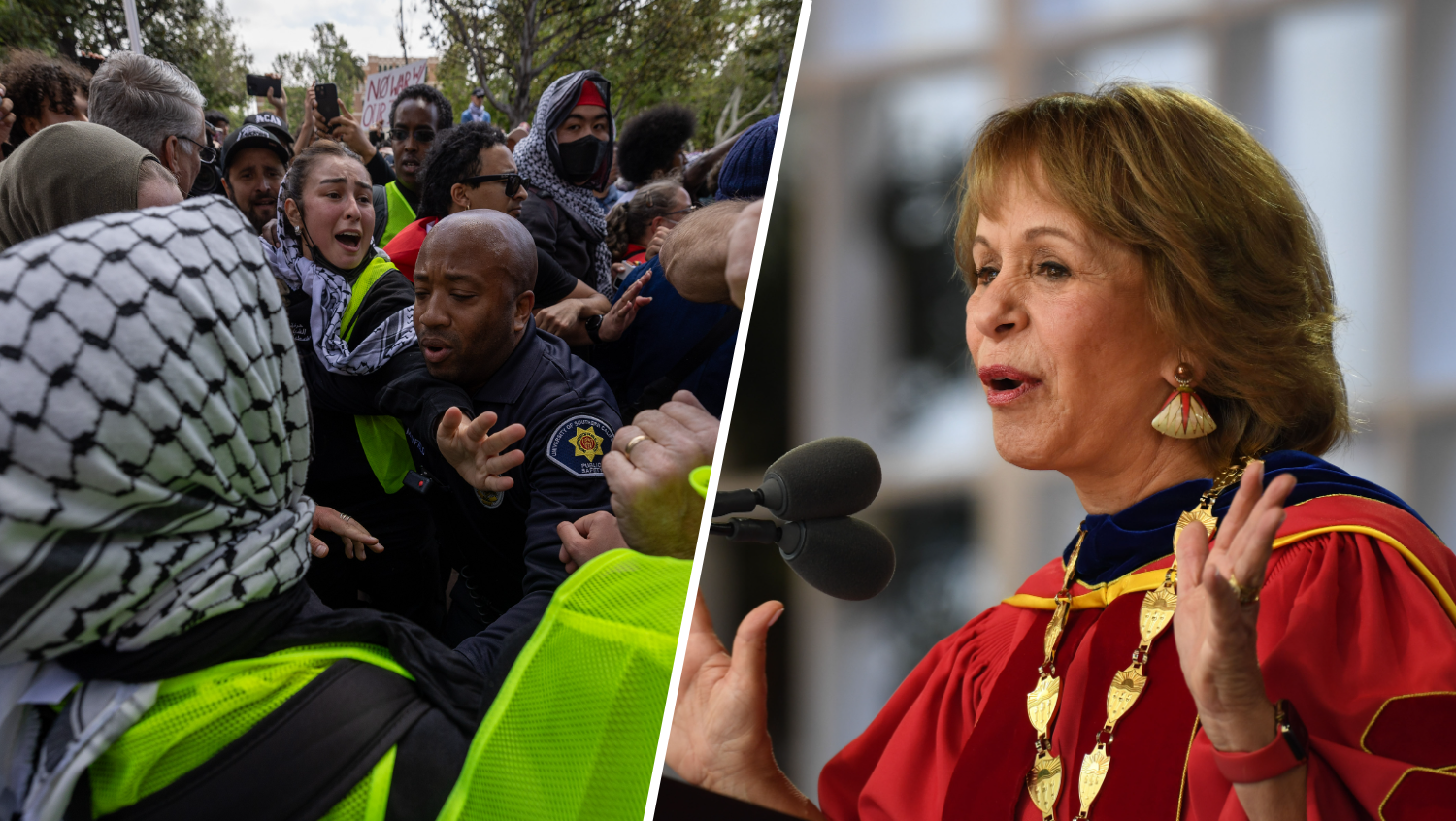Martin Luther King and the civil rights movement were an inseparable part of Stewart Kwoh's childhood. As he was growing up, there was one word that kept coming up over and over again: justice.
"In my church, I had a white pastor who would go down south and almost get killed in the marches. I had an African American Sunday school teacher," Kwoh, who is the Asian Americans Advancing Justice executive director, said.
Kwoh saw the pain African Americans endured in the South, and he also learned about some of the ugly history Asian Americans endured, like the Chinese Exclusion Act of the late 19th century and the internment of Japanese Americans during World War II. So, when Kwoh became a lawyer, he realized something was missing.
"There was no Chinese American or Asian American lawyer who could stand up and say, 'That's wrong,'" Kwoh said.
In 1983, Kwoh began doing just that. He started an organization in downtown Los Angeles, one that was dedicated to fighting for civil rights for Asian Americans.
Asian Americans Advancing Justice began with one person working in a church. It's grown to more than a 100 people and more than 800 volunteers.
Kwoh says he was driven all these years by a mother and a broken heart.
News
Top news of the day
The same year Kwoh started, he began working on the case of Vincent Chin, a man killed by two white auto workers in Detroit allegedly angry about job losses to Japan, thinking the Chinese American Chin was Japanese.
Kwoh met with Chin's mother.
"That night, I said, 'Lily are you OK?' And she said, 'Stewart I'm OK, but there's nothing I can do to bring back Vincent. I don't want any other mother to go through what I went through,'" Kwoh said.
It was the first of many cases Kwoh took on, but as his team of lawyers and advocates began to grow, there were many battles to fight.
In 1995, the discovery of a sweatshop in El Monte, more than 70 Thai immigrants forced to work behind barbed wire and under armed guard, led to the workers winning a multi-million dollar settlement.
Four years later, the murder of Joseph Illeto, a Filipino American postal worker was gunned down by a white supremacist. Kwoh and the Ileto family fought for anti-hate crime laws.
"Doesn't really matter how long you've been here, we're still considered foreigners," Kwoh says.
Kwoh, however, is no foreigner in Los Angeles, building bridges with organizations like the United Way which just held its annual walk to end homelessness in partnership with the LA Rams.
United Way CEO Elise Buik is a longtime friend of Kwoh's. In fact, she says starting the walk in Los Angeles was Kwoh's idea.
"Stewart was instrumental in allowing me and encouraging me to have the courage for us to become a more mission based organization to stand up for what's right in this community," Buik says. "Helping in the fight to end homelessness may not have been part of Kwoh's plan at the beginning, but it is now."
The staff at Asian Americans Advancing Justice speaks a dozen Asian languages, along with Spanish. It helps not only Asian immigrants but Latino ones too, assisting with the Deferred Action for Childhood Arrivals (DACA) program and anyone who needs guidance through the immigration process.
"I think Stewart has never really been afraid to do things traditional organizations won't do," Aileen Louie, Asian Americans Advancing Justice co-director of development, said. "He's really unafraid to kind of figure out how we can meet community needs that are not being met."
Earlier this month, Kwoh received an award from the California State Legislature for his work in civil rights, but he says civil rights can't just be about Asian Americans; it has to be about justice.
And justice, Kwoh learned early on, is for everyone.



